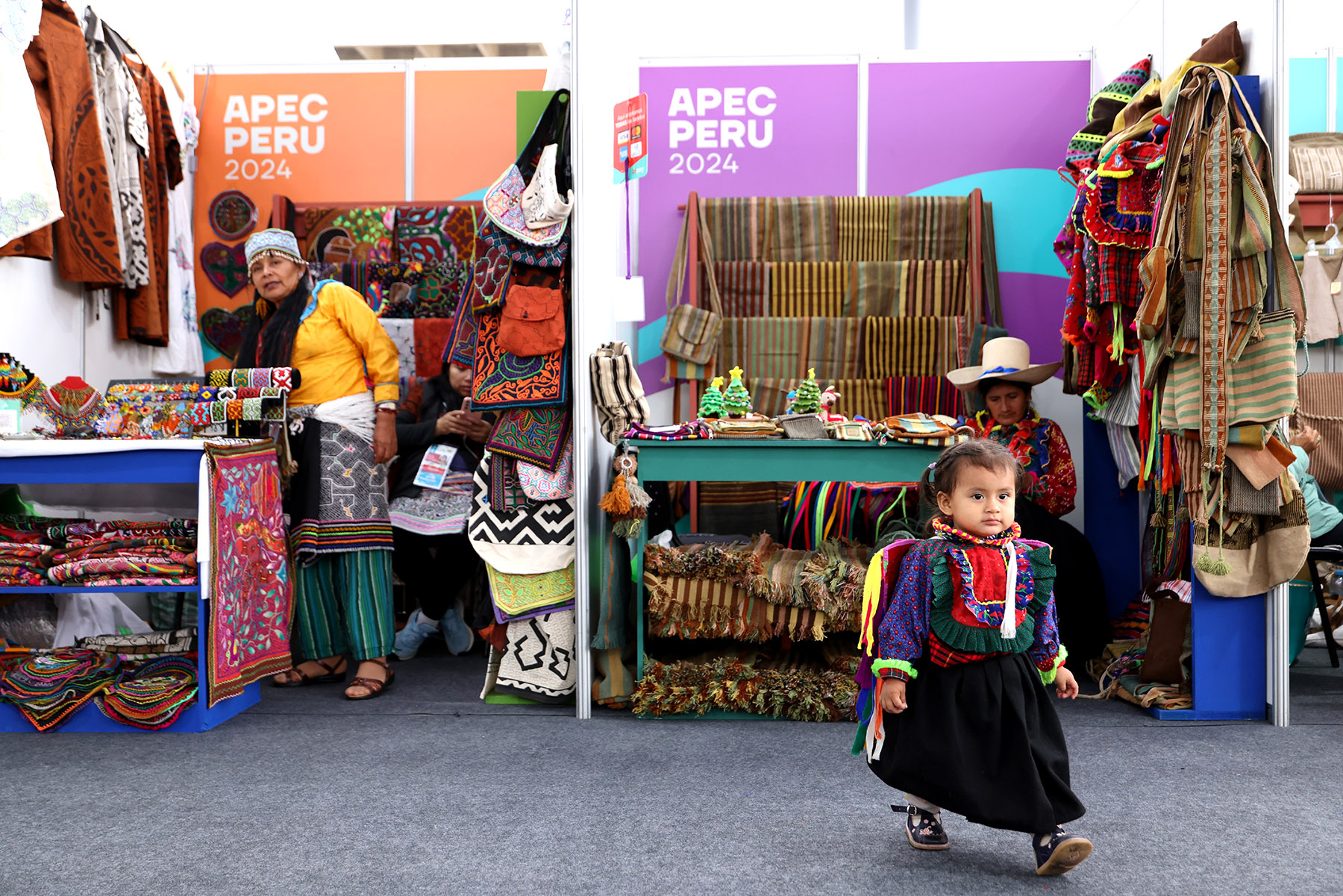
The Asia-Pacific Economic Cooperation will remain vital for globalization, with the group's meetings in Peru aiming to highlight its role as the gateway for trade and investment from China and Asia to Latin America, experts said.
Michael Walsh, executive director of the Pacific Basin Economic Council, an organization of CEOs and business leaders, said this year's gathering serves as a pivotal platform for fostering inclusive economic growth across the Asia-Pacific region, especially against the backdrop of changing political winds with regard to trans-Pacific trade.
READ MOER: Xi's visit aims to fuel growth, solidify ties
In the face of economic challenges and the attack on free trade, APEC is seeking to reinforce regional cooperation and globalization while supporting a sustainable recovery, he said.
The priorities for this year's meetings include trade and investment for inclusive and interconnected growth, innovation and digitalization to promote the transition to the formal and global economy, and sustainable growth for resilient development.
"We anticipate that the discussions will lead to actionable strategies that facilitate efficient implementation initiatives and interoperability in cross-border trade, allowing for a more equitable redistribution of resources and opportunities throughout the region," Walsh added.
Alejandro Indacochea, president of law firm Indacochea Asociados, said the APEC gathering is a significant event for Peru, which could become the hub of Latin American integration with Asia.
"The 21st century belongs to the Pacific Basin, where the fastest-growing economies are found," said Indacochea, who is also founding professor of the Centrum Business School at Pontifical Catholic University of Peru.
He said the upcoming inauguration of Chancay Port, a key project in Peru under the Belt and Road Initiative, will be a historic event for both the country and Latin America. Ships from Asia weighing 50,000 metric tons, which previously could not dock in Peru, can now arrive at the new port, he said, adding that the shipping time could also be reduced by 12 to 15 days.
Renzo Burotto, a historian from Chile, said the 21 APEC economies vary widely in size, capacity and comparative advantages, but all the members are treated as equals on the platform.
"China, as an APEC member, has traditionally emphasized Asia-Pacific cooperation as an area of opportunity for development, and calls for deepening and continuing the dialogue and friendship," he said.
Burotto said that China's unique capabilities could significantly contribute to jointly finding solutions to socioeconomic development challenges.
The APEC meetings will serve as a catalyst for deeper economic integration between China and Latin America, fostering increased trade and investment by air and sea, as well as virtually, in a mutually beneficial relationship that promotes trade, investment and shared prosperity, he added.
Walsh, from the Pacific Basin Economic Council, highlighted APEC's efforts in improving trade facilitation, investing in green technology and fostering the digital economy.
Streamlining customs procedures and reducing tariffs can significantly boost the flow of trade, and APEC members should also prioritize initiatives that enhance digital infrastructure and regulatory coherence, he said.
Robson Cardoch Valdez, a professor of international relations at the Brazilian Institute of Education, Development and Research, said that economic and trade cooperation should be tools to foster dialogue and bridge cultural, religious and governance differences.
Greater APEC participation will create more possibilities for different economic players to benefit from energy transition and from sectors such as electric vehicles and semiconductors, he said.
ALSO READ: All eyes on China at APEC event
These opportunities will allow nonmember economies to access trade networks and technological advancements and participate in green infrastructure, aligning them with global sustainability standards and facilitating their integration into global trade, Valdez said.
He added that APEC's feature as a forum for cooperation based on consensus gives the group the flexibility to adapt to different conditions and accommodate the interests of its current members, as well as those of prospective members.
Kim Heung-chong, a professor by special appointment of the Graduate School of International Studies at Korea University in Seoul, South Korea, said the Asia-Pacific region could better promote globalization.
To do so, it needs to make greater use of existing regional trade agreements and initiate new preferential trade agreements, such as the proposed China-South Korea-Japan free trade agreement, he added.
Jimena Esteban is a freelance journalist for China Daily.
Contact the writers at kelly@chinadailyapac.com


